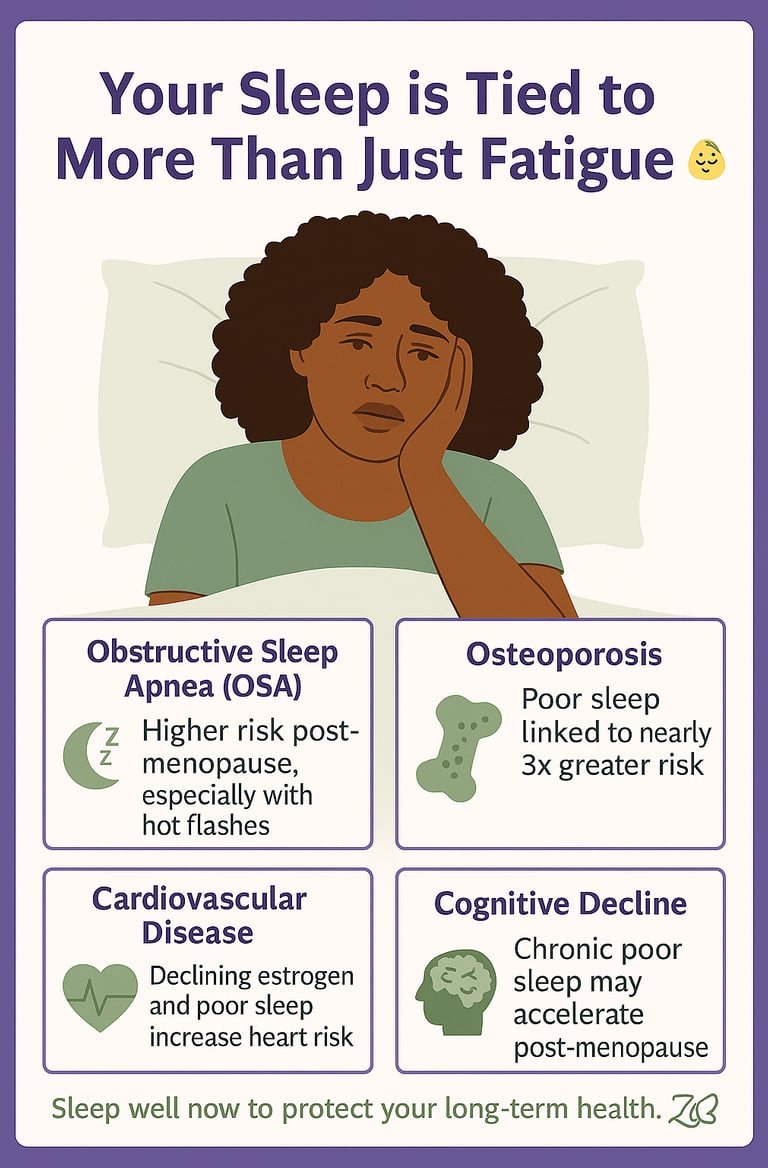Transform your health. transform your life.
Its About More Than Just Fatigue
Yes, sleep troubles during perimenopause are frustrating, leading to daytime fatigue but did you know that poor sleep is linked to a host of chronic diseases?
Zakiya Owens, MS, CHC
10/1/20251 min read


POOR sleep during perimenopause goes far beyond just feeling tired and cranky. The consequences of chronic sleep disruption quietly increase your risk for numerous serious health conditions that you might not associate with your sleep patterns. Here are just a few.
Obstructive Sleep Apnea (OSA): The risk for OSA, long considered a "men's problem," increases significantly for post-menopausal women. Studies show that women with severe hot flashes have nearly twice the risk of developing it.
Osteoporosis: There's a surprising link between poor sleep quality and lower bone density. Insomnia or sleep apnea can put you at nearly three times the risk for developing osteoporosis.
Cardiovascular Disease: Declining estrogen affects the elasticity of your blood vessels, increasing your risk for heart disease. Sleep deprivation can profoundly worsen these effects.
Cognitive Decline: Researchers are now investigating chronic poor sleep as a potential accelerator of cognitive decline, making restorative sleep a proactive tool for long-term brain health.
This evidence makes one thing clear: addressing your sleep issues during perimenopause isn't just about feeling better tomorrow. It's a crucial investment in protecting your long-term cardiovascular, bone, and cognitive health.
You deserve to live well!
Empowering women to thrive through mid-life.
© 2025. All rights reserved.
